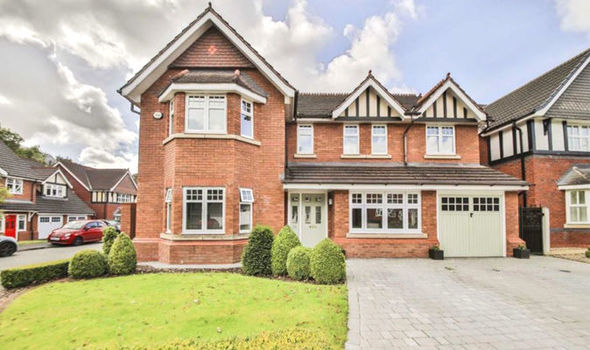MONTHS of soaring house prices have left many property owners feeling like they have won the Lottery as they watch the value of their property sky-rocket.
Yet for many who are looking to cash in, the reality is finding a buyer can often take months and months – while others can wait years.
There’s a myriad of reasons why a property might not sell.
And that’s why rising numbers of people who find themselves in a property checkmate are looking to speed-up moves by turning to raffle-style win-a-house contests.
Jonathan Rolande from the National Association of Property Buyers said: “We are noticing increasing cases where owners encourage thousands of people to buy a ticket, sometimes for as little as a couple of quid for their home, with the lucky winner getting the keys to their property.
“The schemes often attract a lot of interest especially when they are well promoted on social media and can be a great way of selling your home..”
However there are certain things people thinking of embarking on “Win A House Contests” need to know.
Here Jonathan, who is also a director of House Buy Fast, shares the key facts for those planning to create such a scheme.
Firstly, why do these contests exist ?
Usually two reasons. The owners are trying to sell their own house for more than its market value. Or the owner is selling a house that won’t sell on the open market.
What’s the legal position?
It is really complicated! Different rules apply depending on the way they are organised. It is essential for organisers to take expert legal advice.
There are broadly three types of contest to consider: Lotteries, prize draws and prize competitions.
Ok, tell me about “Lotteries”
With lotteries the money after expenses and prize costs must go to a good cause. The organiser or promoter of the lottery must also be a non-commercial society.
Lotteries are considered a form of gambling. The Gambling Commission regulates lotteries. Here’s more from them: Raffling a house or car – Gambling Commission
How do prize draws differ?
With a prize draw you can offer a prize, sell tickets and make a profit. BUT as well as the paid entry route you MUST offer a free entry route.
There are quite strict rules on offering the free entry route, ie. it must be made clear and must be no more than the cost of a stamp etc.
Prize draws are not considered gambling and they are not regulated by the Gambling Commission.
What’s different about “prize competitions”?
With a prize competition you can offer a prize, sell tickets and make a profit. BUT the outcome must be determined by the participants’ skill, judgement or knowledge. For example, by asking participants to answer a question.
There are quite strict rules on how skill, judgement and knowledge is tested, ie. it must be hard enough to discourage some people from entering!
Prize competitions are not considered gambling and they are not regulated by the Gambling Commission.
However here’s what the Gambling Commission say about prize draws and prize competitions: Free draws and prize competitions – Gambling Commission
What happens if it goes wrong?
Good question. There is a real risk that organisers may, even accidentally, set their contest up as an illegal lottery. In this case the Gambling Commission and/or your local authority can intervene to stop and/or prosecute you.
The maximum penalty is 51 weeks imprisonment and/or a £5,000 fine!
What are the possible problems for organisers ?
1. Huge investment needed …. even if you already own the house.
2. It is easy to break the law by getting it wrong.
3. It is likely to be very difficult/expensive to persuade enough people to buy enough tickets.
4. At the end of this you might still not sell the house!
What are the possible problems for consumers ?
1. You don’t know what the odds of winning are before you enter.
2. Your entry money isn’t secured in any way if the organiser goes bust, gets shut down or just disappears.
3. There could well be a condition in the rules to say that if insufficient tickets are sold the value of the prize can be reduced.
Jonathan adds: “I would also urge people to consider the economics behind it. It’s fairly questionable whether it is actually that viable to give away a house this way.
If you were offering a £1 million house and decided to sell tickets at, say, £2 you would need to sell half a million tickets just to cover the cost of the house.
Even if you decided to sell tickets at, say, £20 you would need to sell 50,000 tickets just to cover the cost.
That would be an awful lot of work. And even then it wouldn’t cover marketing costs, admin. costs or any profit. The economics behind it are getting harder due to rising house prices too. House prices have risen circa 11% over the last year. So you would need to sell 11% more tickets than this time a year ago just to break even assuming ticket price is the same).




